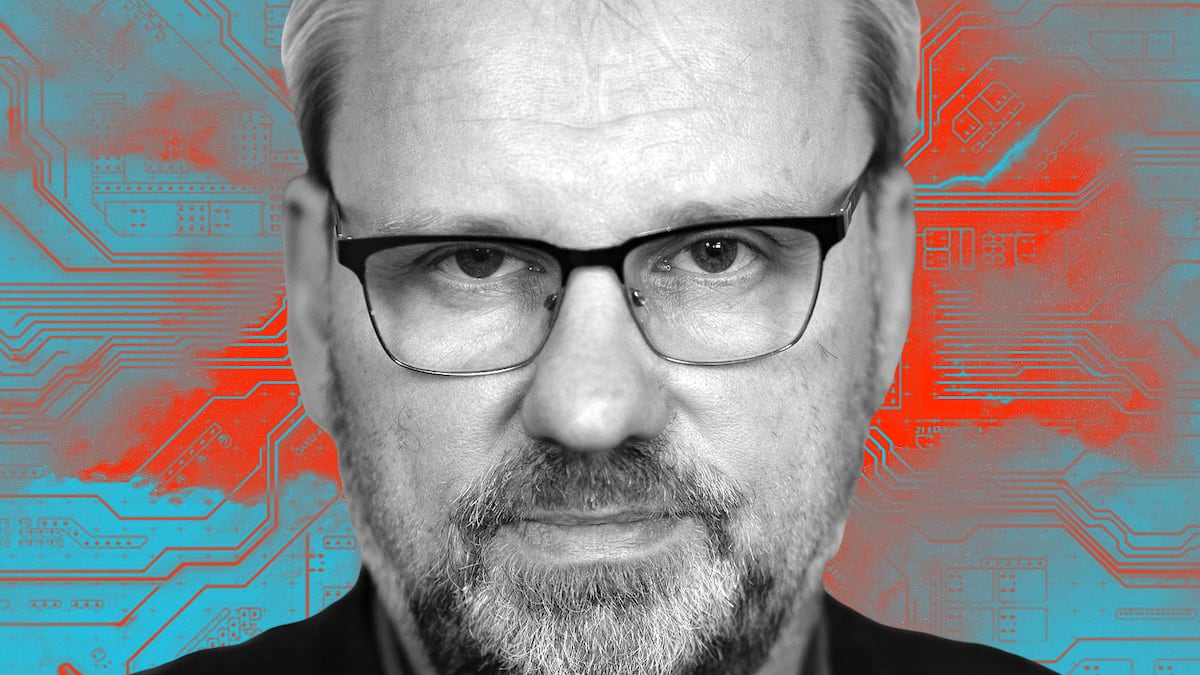Wolfgang Münchau is a columnist for DL News. He is co-founder and director of Eurointelligence, and writes a column on European affairs for UnHerd. Opinions are his own.
A British diplomat in the 1950s, Russell Bretherton, made an infamous prediction about the soon-to-be-created European Economic Community.
“The future treaty you are discussing has no chance of being agreed; if it was agreed, it would have no chance of being ratified; and if it was ratified, it would have no chance of being applied.”
In the history of political misjudgements, this one ranks pretty much up there, but there is now a worthy challenger. European economists predicted that crypto was just a fad.
When that turned out to be mistaken, they predicted that it would collapse in a bubble. When it didn’t collapse, it was dismissed as a vehicle for criminals.
Now that spot ETFs have started to push liquidity from the general investment community into the crypto market, it is getting harder to defend that particular story line.
Now the ECB’s resident crypto-sceptics, Ulrich Bindseil and Jürgen Schaaf came out with the ultimate argument: Bitcoin impoverishes the many for the benefit of the few.
For readers who struggle even to understand this argument at face value, this is a reference to the idea that early adopters of Bitcoin have become very rich — as though this never happened in the fiat-based financial sector.
Funny money
The Bindseil/Schaaf essay is not the official position of the ECB, nor is it an official ECB document. But anti-crypto prejudice is alive and well within the ECB.
Christine Lagarde once called crypto “funny money.”
As far as I can remember, she never expressed any strong views about other asset classes before.
This institution has not given serious thought to the question of why crypto had defied their previous expectations, what its perseverance implies for central bank digital currencies, how it would affect the financial sector or the banks, or indeed what it would mean for the future of fiat money itself.
The US has no shortage of arrogant economists, but I don’t hear as much crypto denial. A minimalist view of crypto, one that would still be consistent with classic economic thought, would be one of an asset class with the potential to bring about productivity gains to the financial sector.
You don’t need to resort to fiat money arguments of the kind I have been making to see value in a cryptocurrency.
So why are the Europeans foaming at the mouth at the mere mention of crypto?
I think this is part of a wider anti-tech backlash that has infested European society at all levels. The disconnect from the digital world is particularly painful in Germany, where the fax machine still rules supreme in public administration and doctors’ offices.
The motor car, the commercially most significant German invention of all time, is on the verge of turning from a product of mechanical precision engineering into a digital device with wheels. But the world of digital devices is not a European one.
Nor is the world of crypto.
It is one thing to fall behind in digital technologies. It is another to define yourself in that way.
The wrong way
This decade, the EU intensified its anti-digital jihad — on data protection, social networks, AI, and this year on crypto regulation in the form of the EU’s Markets in Crypto Assets Regulation, dubbed MiCA.
Drawing up regulation is what the EU does for a living. Of all the EU’s tech regulation, MiCA is not even the worst. But the EU has got it the wrong way round.
We did not create a highway code before we invented the car. But we have crypto regulation without a crypto industry.
Current US crypto regulation, with its legalistic approach, is also hostile to the industry. I am not surprised to see crypto markets reacting euphorically to Donald Trump’s victory, and to start funding Congressional races in support of candidates promising a light-handed touch to crypto regulation.
The Republican sweep of the White House and Congress comes with the credible promise of a more crypto-friendly regulatory environment. Gary Gensler, the SEC chairman and a long-standing bane of the crypto industry, will leave January 20.
The US will move over to a more liberal regime than the heavy-handed MiCA, which will become the global standard.
It is a shame that the EU has become so negative on the most exciting technological developments of the 21st century. I see the deep reason for why this is happening in the absence of deep capital markets in Europe.
Capital desert
The tech industry in the US has been a financial creation. After the launch of the euro in 1999, the EU should have proceeded to develop a joint capital market.
The current financial system is prejudiced in favour of old companies and old technologies over new ones. A unified capital market would have required deep political integration, including a joint sovereign debt asset that acts as the glue for a capital market.
EU members did not want to go that far, but that left each of them in charge of their own economic development. The tech industry, and fintech in particular, thrives on freedom of regulation and freedom of capital movement.
The EU has neither. Finance, more than anything else, is what keeps Europe stuck in the 20th century. Of all 21st century innovations, none is more remote from 20th century attitudes than crypto.
I would therefore expect the article of the ECB authors not to be the last example of European crypto denialism.
In their fantasy world, crypto will keep on crashing, and failing and disappearing, and then crash some more.
